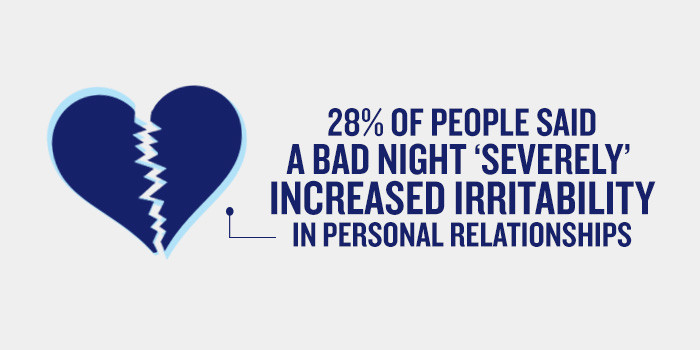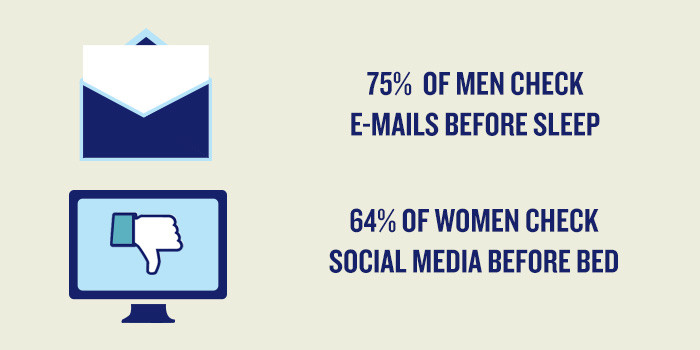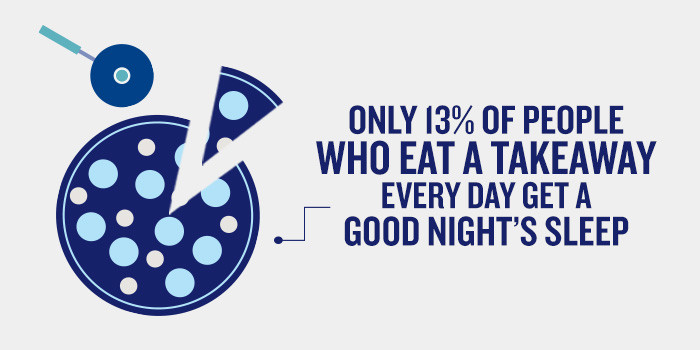WHY DO I WAKE UP TIRED?

For some, it seems that no matter how much sleep they get each night, they still wake up tired. Whether they get their recommended eight hours’ sleep or not, these unfortunate sleepers always wake up tired, and then feel constantly tired throughout the day. For some, it seems that no matter how much sleep they get each night, they still wake up tired. Whether they get their recommended eight hours’ sleep or not, these unfortunate sleepers always wake up tired, and then feel constantly tired throughout the day.
Over in the US, recent research* by YouGov showed that a significant number of Americans don’t feel fully rested for most of the week. This study indicated that 40% of respondents wake up once, twice or three times a week feeling poorly rested, while 38% said they felt poorly rested four or more days a week.
Here in Australia, waking up grumpy seems to be a common problem, with data collected** internationally from smartphone application Sleep Cycle showing that Australians’ mood when waking up ranked 83rd out of the 91 countries tracked, coming in at 57.42%.
This could be related to the fact that Australians report a general lack of good quality sleep, with the Sleep Health Foundation’s 2016 Sleep Health Survey*** showing that 33-45% of Australian adults complain of having inadequate sleep, either in duration or quality.
While poor quality sleep certainly has its negative side effects for the individual sleepers who endure it, getting a bad night’s rest may also have a much wider effect on the economy.
TEMPUR research**** links productivity at work with tiredness among workers, showing that workers who slept for six hours or less a night were notably less productive than those who managed to get around seven or eight hours’ sleep.
REASONS BEHIND WAKING UP TIRED
Enduring tiredness throughout the day certainly seems to be a problem. So, if you often find yourself wondering, why do I wake up tired?, why do I feel this tiredness all the time? or simply, why am I always tired?, this could be the time to uncover the possible reasons behind it.
Sleep experts have uncovered a number of reasons behind this feeling of waking up tired, with the most common factors relating to disturbed sleep, and the way that getting too little or too much sleep can affect sleep cycles.
DISTURBED SLEEP
While we may not notice that our sleep is disturbed through the night, suffering disturbed sleep can often result in that feeling of waking up tired, even when we get our recommended amount of sleep.
Most us move a little as we sleep, turning over and settling in a different position throughout the night. However, too much of this tossing and turning may prevent you from staying in a deep-sleep state, a state that is essential to feeling well-rested when you wake up.
Disturbed sleep caused by too much movement in bed can be triggered by any number of factors. These can include:
- Discomfort on Sleep Pressure Points: Sleeping on a mattress that doesn’t provide the support or comfort levels you need may cause you to move around in your sleep as your body unconsciously tries to find a more supported, comfortable position.
- Food and Drink: Consuming alcohol, caffeine, heavy meals or spicy foods before bed means your body needs to work harder to deal with them, which may result in disturbed sleep.
- Mental Issues: Stress, anxiety and depression can affect the quality of sleep you enjoy, resulting in poor sleep or fragmented sleep. Medication for certain illnesses such as epilepsy and ADHD can result in insomnia.
- Illness and Sleep Disorders: Temporary illnesses such as tonsillitis and colds can disturb sleep, as can sleep disorders such as sleep apnoea, snoring and restless leg syndrome.
- Poor Sleep Environment: Noisy neighbours, too much light, hot or cold conditions, or having a partner who snores can all result in disturbed sleep. Parents with small children often have fragmented and disturbed sleep, getting up through the night to comfort or feed their little ones.
NOT GETTING ENOUGH OF THE RIGHT TYPES OF SLEEP
Waking up tired can also be associated with not getting enough of the right types of sleep, whether through getting too much sleep, too little sleep, or having the sleep cycle disturbed through one of the factors listed above.
When we sleep, our bodies run through four distinct stages of sleep, with each stage featuring its own range of brainwave frequencies and patterns, which work to play a specific role in maintaining our physical health and mental wellbeing.
Non-REM Sleep Cycle
- Stage 1: Sleep is short, light and easily disrupted; Brainwaves feature alpha and theta waves; Movement can feature sudden twitches or hypnic jerks.
- Stage 2: Sleep is of medium depth; Brainwaves feature theta waves punctuated by higher voltage sleep spindles and K-complexes; Movement can feature sudden twitches or hypnic jerks.
- Stage 3: This is deepest stage of sleep, unresponsive to the outside environment; Brainwaves feature delta waves and some spindles; Movement is minimal.
REM Sleep Cycle
- Stage 4: Sleep involves vivid dreams and rapid eye movements; Brainwaves feature high-frequency theta, alpha and beta brainwaves (similar to being awake); Movement can feature muscle paralysis, and rapid, random eye movement beneath closed lids.
However, our sleep cycles change as we get older. For example, a sleeper aged 20 spends 22% of their night’s sleep dreaming in REM, while that percentage reduces to 21% for a 40-year-old, 20% for a 60-year-old, 19% for a 70-year-old and 17% for an 80-year-old.
Recognising our sleep cycles is very important when it comes to understanding sleep quality. Firstly, getting too much REM sleep and not enough restorative deep-state sleep may leave us unrefreshed in the morning, and physically drained.
Getting too much REM sleep can also leave us feeling mentally drained and exhausted, as our bodies have spent too long firing off the orientation response. Because the orientation response is the same pathway used by the brain to focus our attention throughout the day, when this is overstimulated through the night by too much REM sleep, we end up feeling mentally exhausted.
* YouGov:
https://today.yougov.com/news/2015/06/02/sleep-and-dreams/
** SMH:
*** Sleep Health Foundation:
https://www.sleephealthfoundation.org.au/pdfs/surveys/SleepHealthFoundation-Survey.pdf
**** The Science of Sleep by TEMPUR:
https://www.raconteur.net/healthcare/understanding-the-sleep-economy
Feel it for yourself
Find a TEMPUR store or Stockist and try out our range of mattresses for yourself

SIGN UP FOR THE NEWSLETTERS!
By signing up, you agree to receive TEMPUR Australia’s products, services, news, reviews and promotions by emails. For more information on how we process your personal data, please refer to our Privacy Policy.


